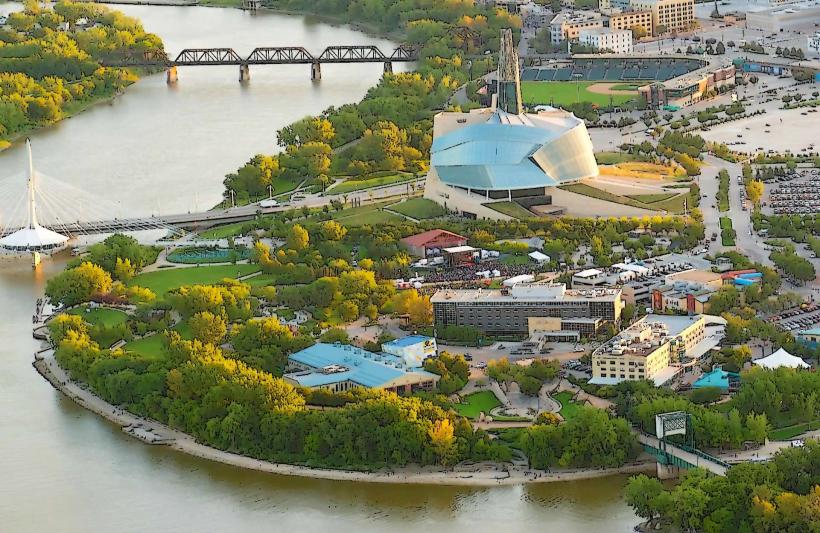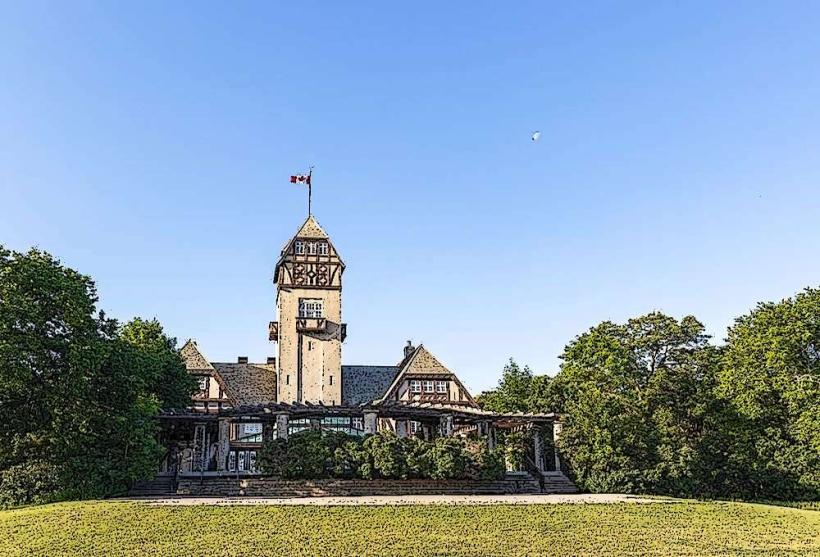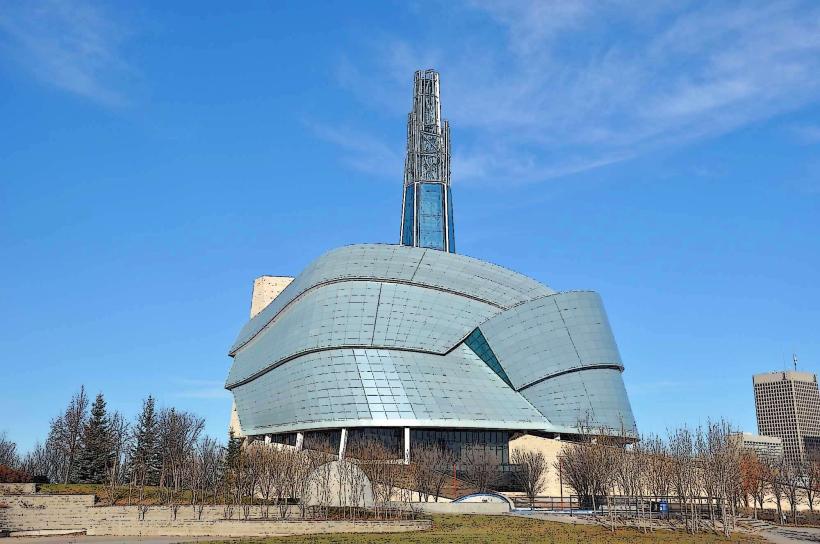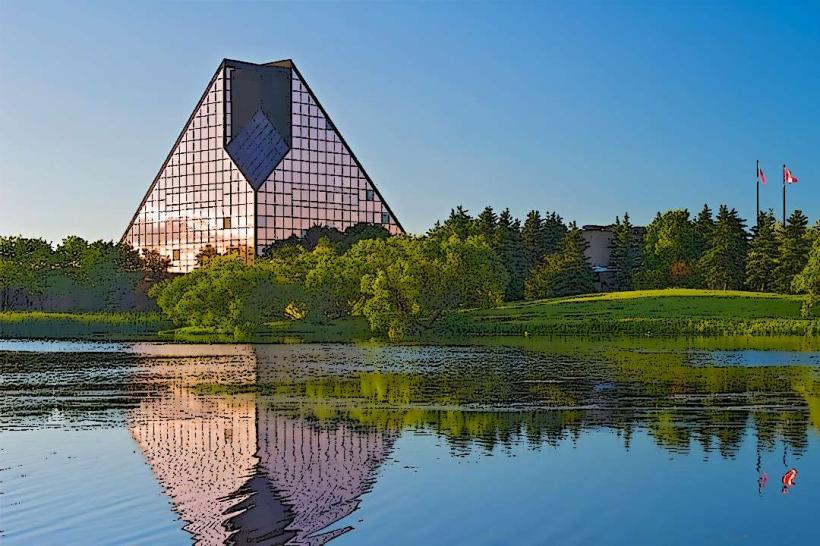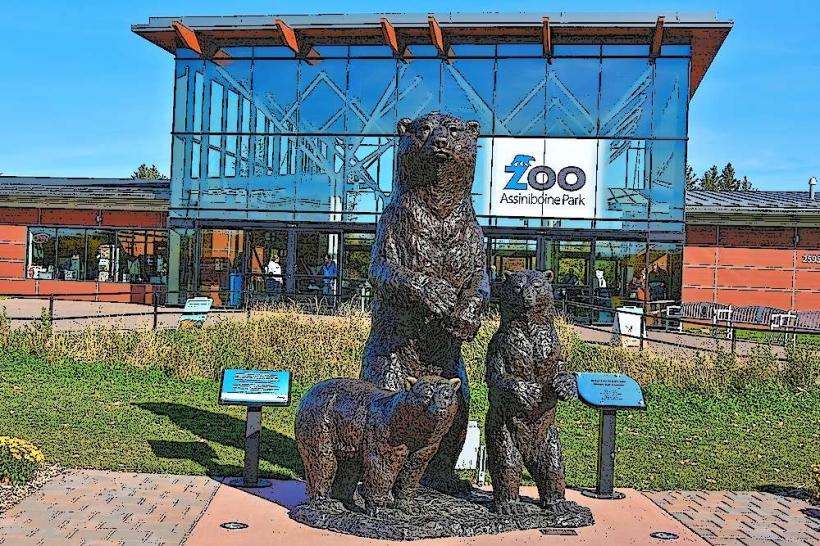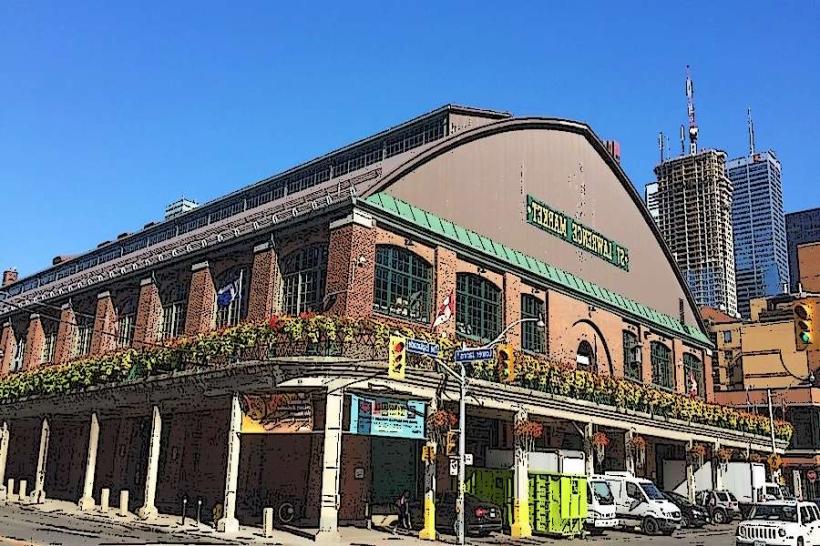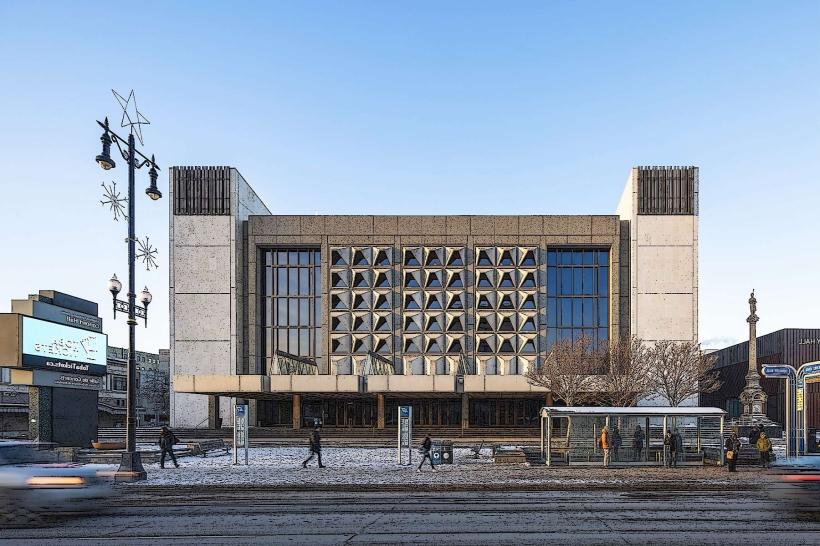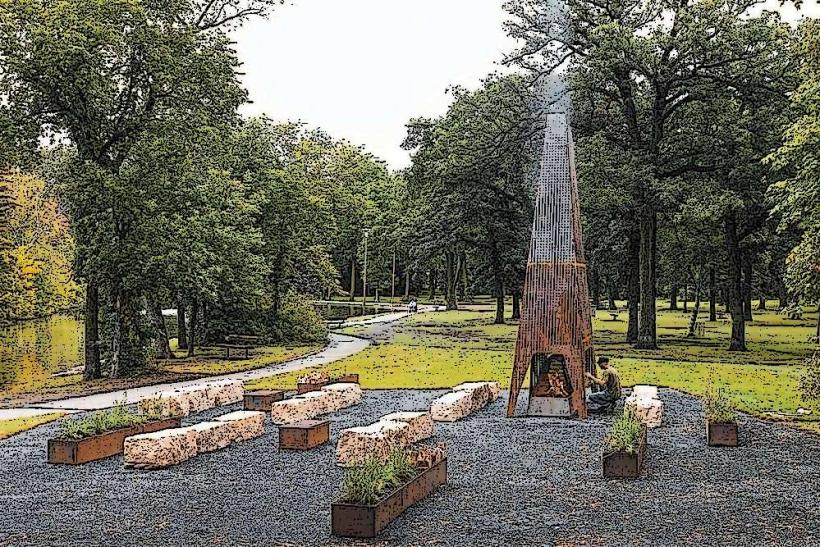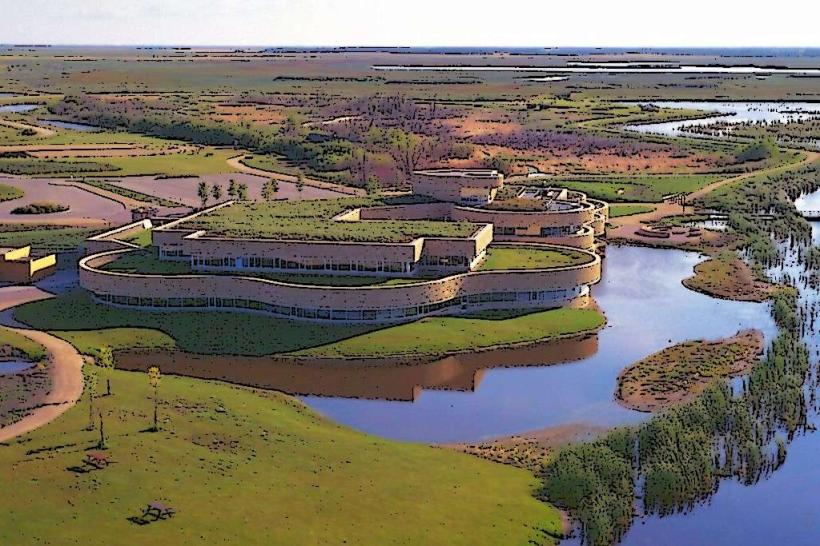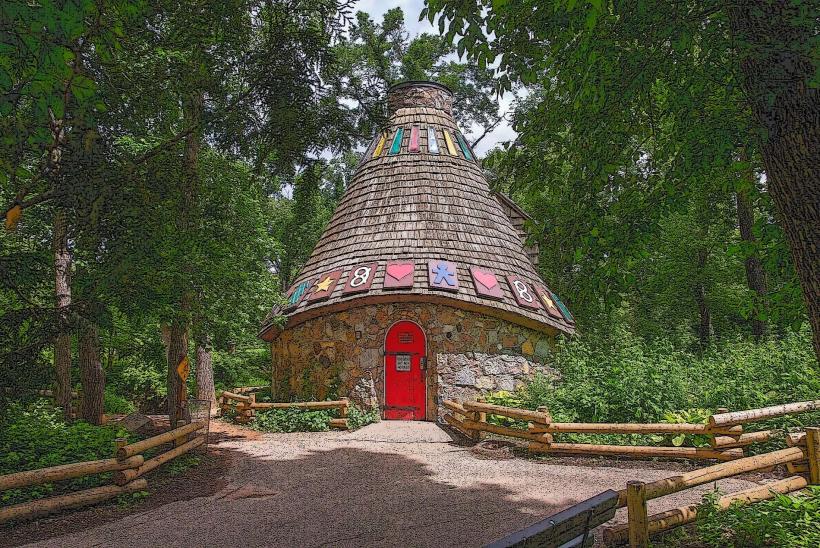Information
Landmark: Fort GibraltarCity: Winnipeg
Country: Canada
Continent: North America
Fort Gibraltar, Winnipeg, Canada, North America
Fort Gibraltar is a reconstructed fur trading post located at The Forks National Historic Site in Winnipeg, Manitoba, Canada.
It represents a 19th-century North West Company trading post.
Visual Characteristics
The fort is constructed primarily from logs, with timber framing and wattle-and-daub infill for some structures. The main buildings, including the palisade walls, bastions, and various interior structures like the storehouse and dwelling houses, are built with rough-hewn logs. The color palette is dominated by natural wood tones and the grey of the stone foundations. The palisade walls stand approximately 4 meters high.
Location & Access Logistics
Fort Gibraltar is situated at the confluence of the Red River and Assiniboine River, within The Forks National Historic Site. Access is via The Forks Market parking lot, located at 1 Forks Market Road, Winnipeg, MB R3C 4L3. From the city center ( Portage Avenue and Main Street intersection), it is approximately 1.5 km southeast. Public transport options include Winnipeg Transit bus routes that stop at The Forks, such as routes 1, 2, 4, 6, 7, 8, 10, 11, 12, 14, 15, 16, 17, 18, 20, 21, 22, 25, 26, 28, 33, 34, 35, 36, 37, 38, 39, 40, 41, 42, 43, 44, 45, 46, 47, 48, 50, 51, 52, 53, 54, 55, 56, 57, 58, 59, 60, 62, 64, 65, 66, 67, 68, 71, 74, 75, 77, 78, 80, 81, 83, 84, 85, 86, 87, 88, 89, 90, 91, 92, 93, 94, 95, 96, 97, 98, 99, 100, 101, 102, 103, 104, 105, 106, 107, 108, 109, 110, 111, 112, 113, 114, 115, 116, 117, 118, 119, 120, 121, 122, 123, 124, 125, 126, 127, 128, 129, 130, 131, 132, 133, 134, 135, 136, 137, 138, 139, 140, 141, 142, 143, 144, 145, 146, 147, 148, 149, 150, 151, 152, 153, 154, 155, 156, 157, 158, 159, 160, 161, 162, 163, 164, 165, 166, 167, 168, 169, 170, 171, 172, 173, 174, 175, 176, 177, 178, 179, 180, 181, 182, 183, 184, 185, 186, 187, 188, 189, 190, 191, 192, 193, 194, 195, 196, 197, 198, 199, 200, 201, 202, 203, 204, 205, 206, 207, 208, 209, 210, 211, 212, 213, 214, 215, 216, 217, 218, 219, 220, 221, 222, 223, 224, 225, 226


